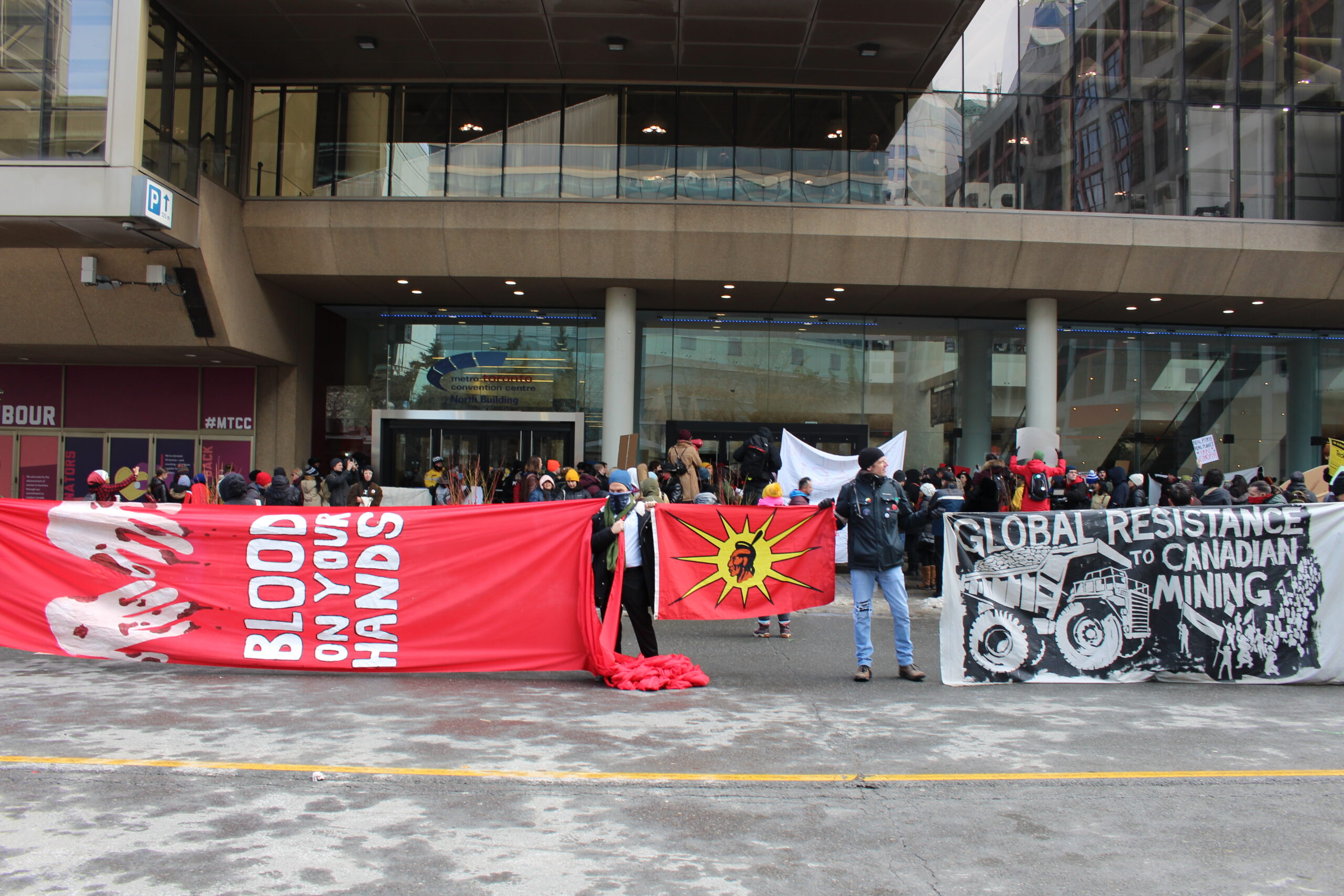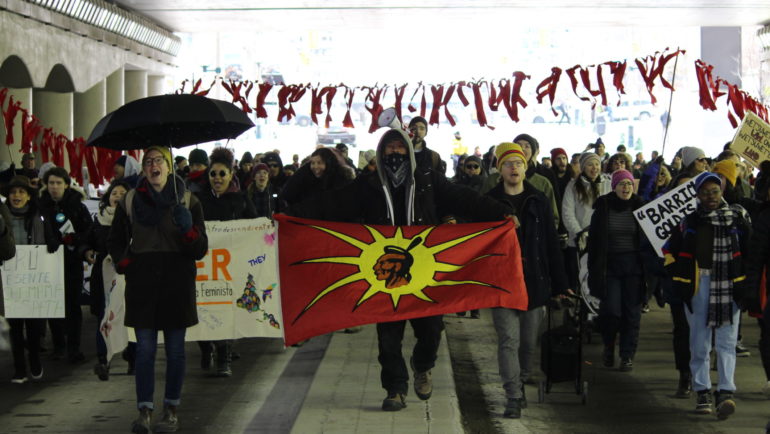
Asmita Munde
First Nations protesters chanted phrases and slogans during a march around the Metro Toronto Convention Centre as mining developers met inside.
More than 200 Indigenous peoples and their supporters gathered in front of the Front Street West building to disrupt the Prospectors and Developers Association of Canada (PDAC), the world’s largest mining convention, on March 1.
The protest quickly moved from the sidewalk to the street creating a blockade, making it difficult for anyone to enter the building for the PDAC conference.
The protestors blocked most of the entrances and parking area of the Convention Centre, in an effort to disrupt and occupy more space around the Centre.
Some protesters tried to storm inside the centre, but were quickly stopped by police.
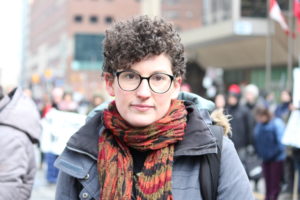
“We’re here today in solidarity with every community around the world that has faced down the barrel of a gun for daring to stand up to resource extraction projects,” said Rachel Small, a member of the Mining Injustice Solidarity Network.
Canada makes up around 75 per cent of the mining companies around the world, and PDAC is held in Toronto every year, where mining industry leaders discuss and sign new deals in the mining sector.
“This conference brings together very powerful people within the global mining industry, which Canada plays a large part in,” said Vanessa Gray of Aamjiwnaang First Nation.
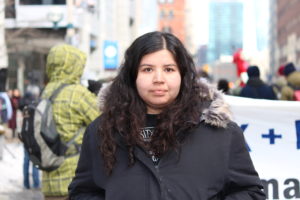
“I am from the Aamjiwnaang First Nation, where pipelines have existed in my community for as long as Canada has been a country,” she said.
“[Companies] continue to use infrastructure that is over 100 years old, and we know this isn’t sustainable,” Gray said.
Nigel Henri Robinson of Cold Lake First Nations said both climate and Indigenous justice are intrinsically tied together.
“Climate justice is factually the dispossession and manipulation of indigenous lands and territories utilized in ways that have created this current climate disaster,” he said.
Robinson believes for any effective climate solutions, Indigenous peoples should be heard, as they are the most sustainable societies in the world.
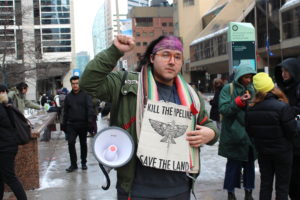
“So when it comes to climate justice, it really needs to be reflective of achieving indigenous justice,” Robinson said.
The protest also offered support for the Wet’suwet’en First Nation, which is opposed to the pipeline constructed by Coastal GasLink in northern British Columbia.
The B.C. court decision that granted an injunction for removal of protestors has led to outrage from many Canadians over the last few weeks.
The RCMP’s enforcement of the injunction has led to violence across the country.
Small said Canada is a state built on the removal of Indigenous people for resource extraction, which is what is happening on Wet’suwet’en land.
“This is exactly how Canada operates and how Canada has always operated with militarized violence to push through its corporate and economic interests,” Small said.
“The way injunctions are being used now in courts to justify this invasion may be a bit of a new tactic, but it continues a longstanding pattern,” she said.
Small believes nobody should ever face violence, especially for people defending their lands, water and territory.
“And that’s what we’re seeing on indigenous lands right now, as the RCMP invades their unceded territory to shove through a pipeline,” Small said.
The protest to disrupt PDAC not only included Indigenous people, but also representatives from South American countries such as Ecuador, and was endorsed by over 50 organizations in Canada.
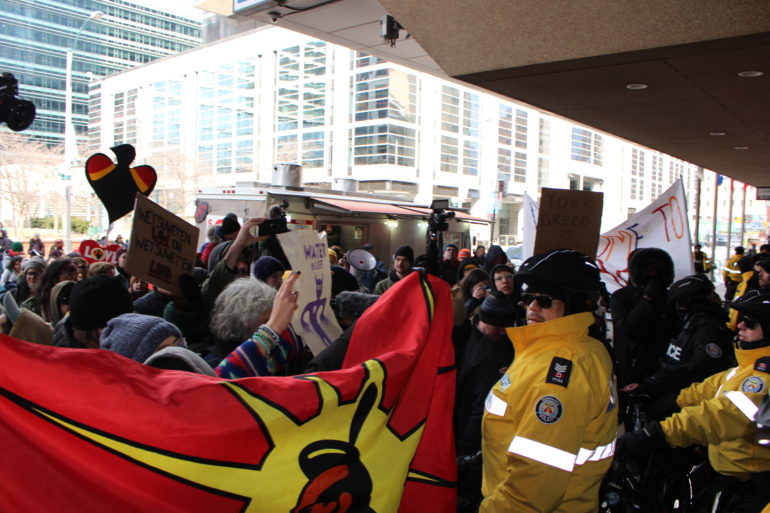
Small said it is a strange era now, where companies like Vale, a Brazilian multinational corporation, that just last year were tailing dams and killing hundreds of people, are the same companies that are now inside leading sessions on environmental sustainability.
“Companies like Barrick Gold Corp. or Hudbay Minerals are literally on trial for murders, for land theft and gang rapes at their mine site, lead sessions in PDAC on good community relations,” Small said. We need to back that up with specific cases.
“They’re very good at telling the story they want to tell, but it doesn’t reflect what’s happening on the ground.”

